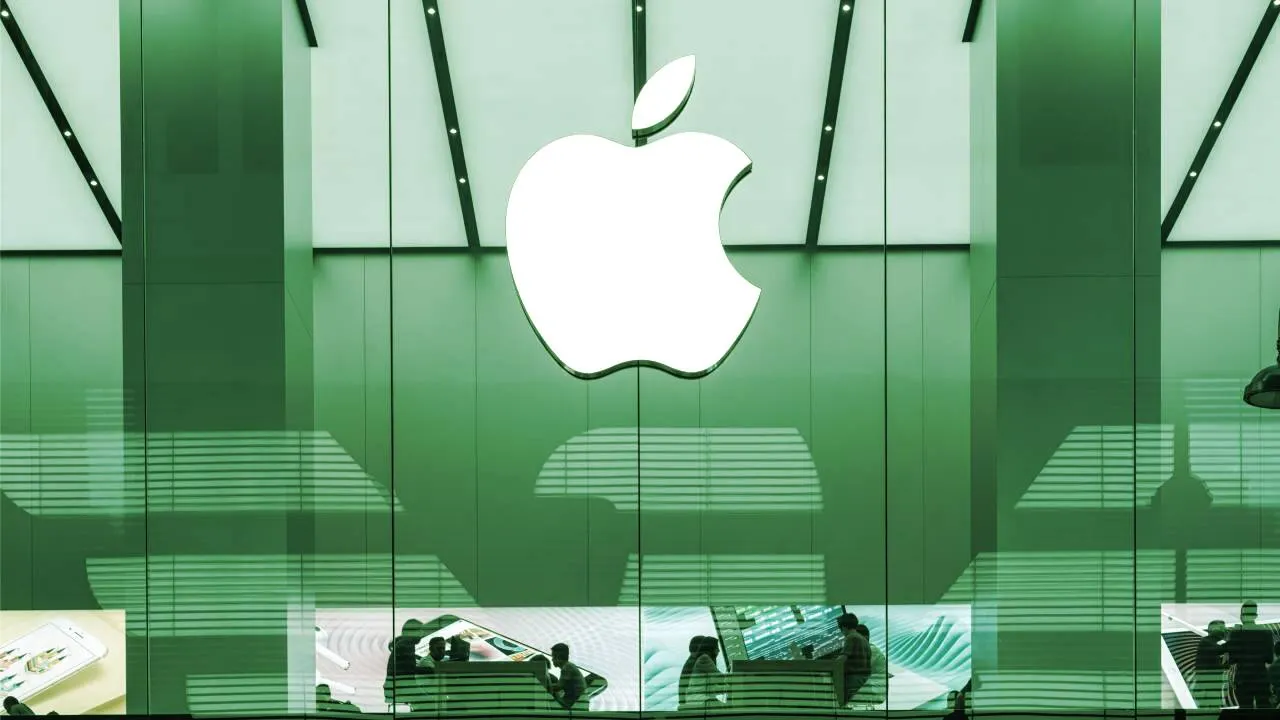In brief
- Apple plans to allow the installation of iOS apps from external sources due to impending EU regulations, Bloomberg reports.
- The move could make it easier for developers to build apps around NFTs and broaden the ability to make crypto payments through iPhones and iPads.
Apple’s “walled garden” ecosystem design has enabled it to take up to a 30% cut of iOS app and service sales, to the frustration of users and creators alike. But a new report suggests that Apple is planning to open up its ecosystem—a move that may benefit apps built around NFTs and possibly expand the ability to make mobile crypto payments.
Bloomberg reports that Apple plans to enable the installation of apps from external sources outside of its own App Store on iPhones and iPads, according to sources familiar with the plans. The changes are being made in response to the European Union’s Digital Markets Act, which requires tech companies to fully comply with restrictions by 2024.
According to the report, the rollout of support for external apps from third-party sources and marketplaces will initially begin only in Europe to comply with the new law. However, the functionality could be expanded to other territories depending on whether those countries adopt similar regulations.
Apple is reportedly aiming to launch the feature in its iOS 17 software update, which is expected to launch next fall based on the typical annual release schedule.
The company is still weighing whether to allow third-party apps to use their own payments infrastructure, Bloomberg claims, rather than force developers to route payments through Apple’s own payments setup. That particular shift, if implemented, could make it much easier to spend cryptocurrency through iPhone and iPad apps.
The reported changes come amid growing pushback to Apple’s closed ecosystem, which not only philosophically clashes with Web3’s decentralized ethos but also has led to restrictions around the ways that apps can utilize NFT assets. In October, Apple updated its developer guidelines to state that NFTs cannot be used to gate access to features or content within apps.
NFT purchases are also subject to Apple’s 30% fee—a potentially impossible limitation to enforce on secondary market sales, at least. The iOS apps for marketplaces like OpenSea and Magic Eden only allow users to browse NFTs, not buy or sell them through the app.
Apple’s NFT rule changes have caused havoc with existing iOS apps as well. Coinbase recently announced that it had to disable NFT transfers through its mobile Wallet app, as Apple said that users would have to pay 30% of any network gas fee (like on Ethereum) for the action. Coinbase described that demand as “not possible” to implement.
Dan Finlay, co-founder of popular crypto wallet app MetaMask and a former Apple employee, tweeted in support of Coinbase, calling out Apple’s “abuse of monopoly.” He suggested that MetaMask could be next to be impacted by Apple’s rules, and added, “I'll absolutely stand in solidarity here.”
Apple’s reported upcoming plans to open up its ecosystem could benefit NFT and crypto apps that are currently limited or hobbled by App Store requirements. Such apps could then be installed via external sources and not be reliant on Apple’s strict policies, although Bloomberg reports that Apple may institute additional “security requirements” for outside apps.
The move could also benefit the growing Web3 metaverse, as Apple is widely reported to be developing a mixed reality headset that may debut sometime in 2023. Many Web3 developers are building towards a metaverse defined by interoperability between platforms, using NFTs to represent ownership of assets that can be freely used across spaces.
Web3 developers aren’t alone in griping about Apple’s current model. Epic Games sued Apple—as well as Google with its Android Play Store—after the tech giant blocked its popular Fortnite game over the addition of a third-party payments model.
A previous court decision that could have forced Apple to allow third-party payments was ultimately delayed, and the companies are still embroiled in the legal battle. Epic Games CEO Tim Sweeney tweeted about today's report, pressing lawmakers to pass similar legislation to potentially force Apple to open up its ecosystem in the United States as well.
Mark Gurman, writing for Bloomberg, says Apple is preparing to open iOS to competing app stores - but only in Europe.
This would leave American developers in serfdom in the nation where Apple was founded.
Congress must pass the Open Apps Market Act! https://t.co/GnCChgi0hX
— Possibly Tim Sweeney (@TimSweeneyEpic) December 13, 2022
If external apps are only allowed in Europe, it "would leave American developers in serfdom in the nation where Apple was founded," Sweeney tweeted. "Congress must pass the Open Apps Market Act!"
New Twitter owner Elon Musk also recently complained about Apple’s policies, and tweeted asking if Apple “[hates] free speech” after the firm cut its ad spending on the social media platform. Musk also alleged that Apple was considering removing the Twitter app, but later chalked it up to a “misunderstanding” after meeting with Apple CEO Tim Cook.

